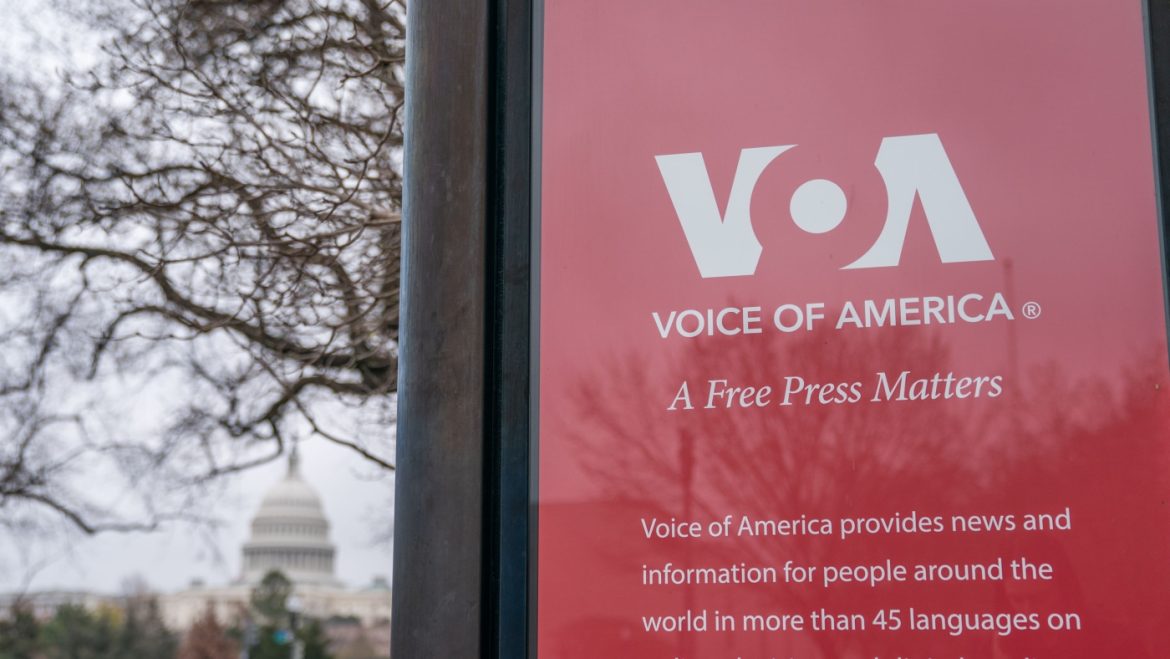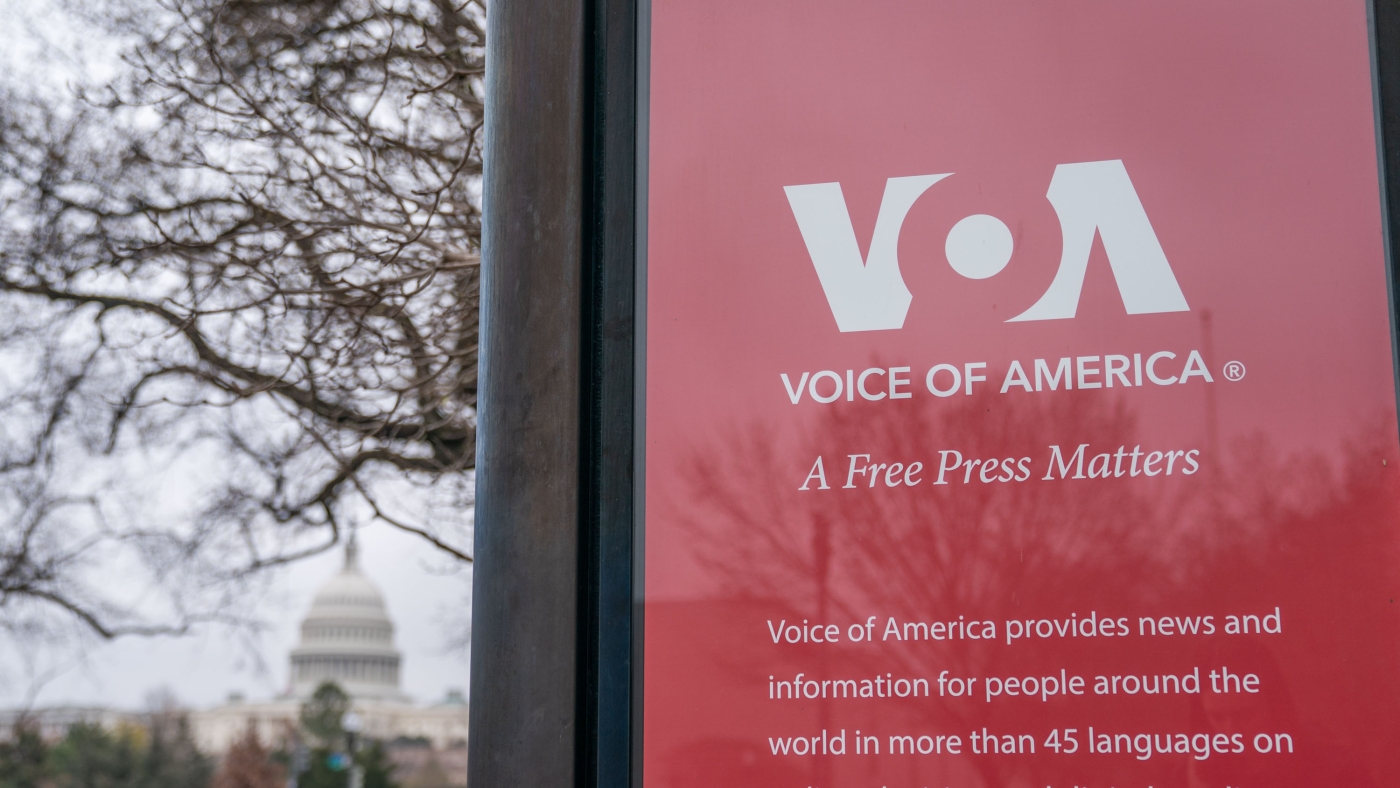The Uncertain Future of Voice of America: A Legal and Political Analysis
The recent legal battles surrounding Voice of America (VOA), a U.S. government-funded international broadcaster, have thrust its future into uncertainty. Following a controversial executive order by the Trump administration aiming to dismantle the agency, multiple court rulings have alternately paused, reinstated, and blocked various operational decisions impacting VOA employees and its broadcasting mission. The shifting judicial landscape, marked by appeals court interventions, raises serious questions about VOA’s sustainability, its role in international media, and broader implications on press freedom funded by the U.S. government.
Background: VOA’s Legacy and Trump Administration’s Executive Order
Established during World War II, Voice of America has served as a critical source of news and information for audiences in authoritarian countries lacking a free press. As part of the U.S. Agency for Global Media (USAGM), VOA operates with congressional funding to broadcast American perspectives worldwide.
In March 2025, the Trump White House issued an executive order substantially cutting VOA’s funding and seeking its near-total dismantlement. This move included terminating contracts with major news agencies and laying off hundreds of employees. The stated justification was to eliminate “frivolous expenditures,” reflecting a broader attempt by the administration to cut back on government-funded international broadcasting. This abrupt disruption led to VOA going dark shortly after the executive order took effect.
Legal Challenges and Court Rulings: A Tug-of-War
VOA’s leadership, journalists, and free press advocacy groups rapidly initiated legal action to block the shutdown and restore operations. Early court decisions sided with VOA employees, ordering reinstatement and the restoration of funding. Over 1,400 staff and contractors regained access to systems and email accounts. However, these victories were short-lived.
Most recently, a federal appeals court issued a stay on a lower court order that had commanded VOA employees’ return to work and reinstatement of funding. The appeals panel, by a 2-1 margin, temporarily froze this ruling, allowing the Trump administration’s dismantlement plans to proceed, at least for the near term. The appeals court also questioned the lower court judge’s jurisdiction to mandate employee reinstatement and funding restoration.
This back-and-forth judicial dynamic has created operational chaos, with VOA staffers uncertain when—or if—they will return to work. The appeals court’s refusal to intervene promptly signals a grim outlook for VOA’s immediate prospects.
Implications for VOA and International Broadcast Journalism
Operational Disruptions and Staff Morale
The ongoing legal limbo has fragmented VOA’s staff and disrupted its broadcasting capabilities. Long-serving reporters and contractors face job insecurity, loss of income, and professional uncertainty. The fluctuating court orders have also hindered consistent news programming, undermining VOA’s ability to maintain its reputation as a credible news source to international audiences.
Impact on U.S. Soft Power and Democratic Values
VOA’s mission is inherently linked to U.S. public diplomacy and the promotion of democratic ideals abroad. Eroding VOA’s operational capacity risks diminishing the United States’ ability to project soft power, counter misinformation in authoritarian states, and serve as a reliable alternative news source resistant to censorship.
The dismantling also raises concerns about the U.S.’ commitment to free press principles. As VOA is a government entity, political interventions in its management provoke fears of undermining editorial independence and politicizing state-funded media.
Legal Precedents and Executive Power Limits
The legal contest underscores tensions between executive power and judicial oversight. The appeals court’s stance to allow dismantlement despite lower court orders reflects judicial deference towards the executive branch’s control over federal agencies. It also sets important precedents about jurisdictional boundaries in cases involving government-funded media organizations.
Broader Context: Press Freedom and Political Polarization
The VOA situation arises amid heightened political polarization and scrutiny of government communications. President Trump’s public accusations of VOA bias, along with his administration’s aggressive restructuring efforts, reflect a broader pattern of challenging institutions perceived as oppositional.
The challenges VOA faces mirror wider debates about the role and independence of government-backed media worldwide. The case exemplifies how international broadcasting entities can become battlegrounds for domestic political struggles, threatening their viability and credibility.
Conclusion: An Uncertain Road Ahead for Voice of America
VOA’s fate hangs in the balance amid an ongoing legal and political dispute that has stymied its operations and clouded its future. The appeals court’s recent decision to pause enforcement of employee reinstatements suggests the Trump administration’s efforts to undermine and possibly dismantle Voice of America may continue unhindered for now. This not only imperils VOA’s historic role as a beacon of free information globally but also signals a shift in how the U.S. government manages and values its international broadcasting apparatus.
For VOA to survive and thrive, clarity and stability in governance, along with assured funding, are essential. The next chapter in this saga will depend heavily on forthcoming judicial rulings and political developments. Until then, VOA remains emblematic of the broader challenges facing state-funded journalism in politically charged environments—a microcosm of the struggle to preserve independent news amid shifting power dynamics.


